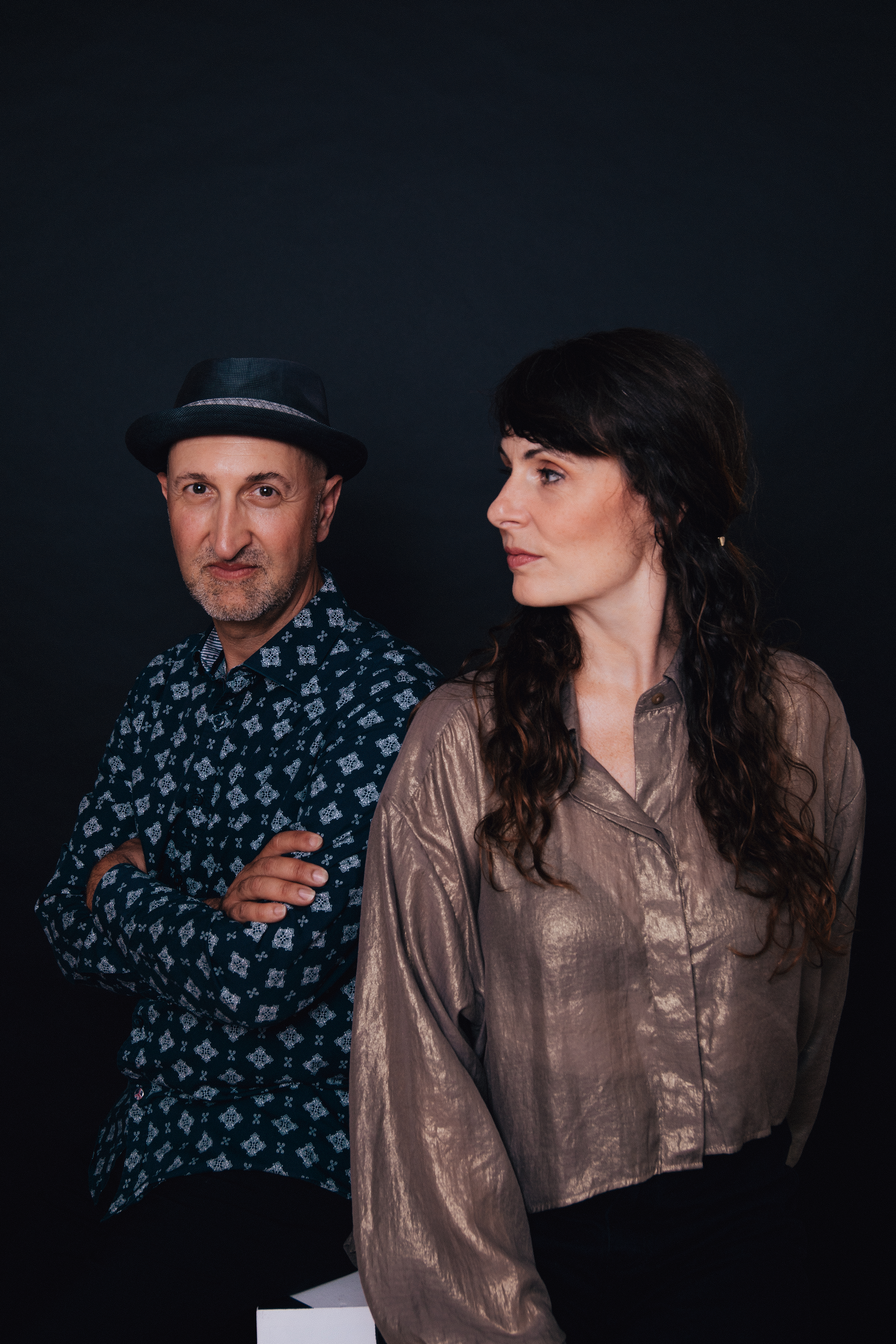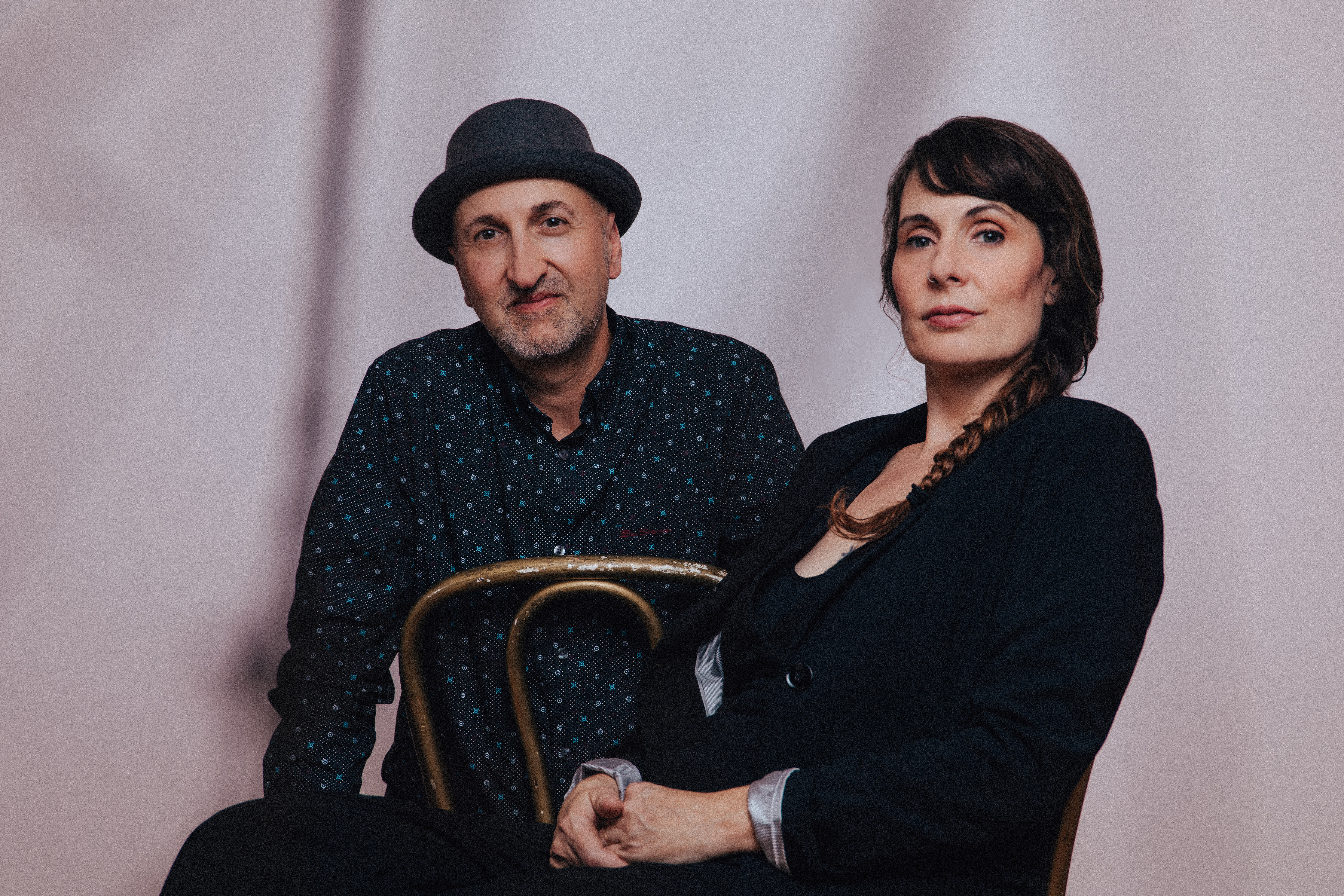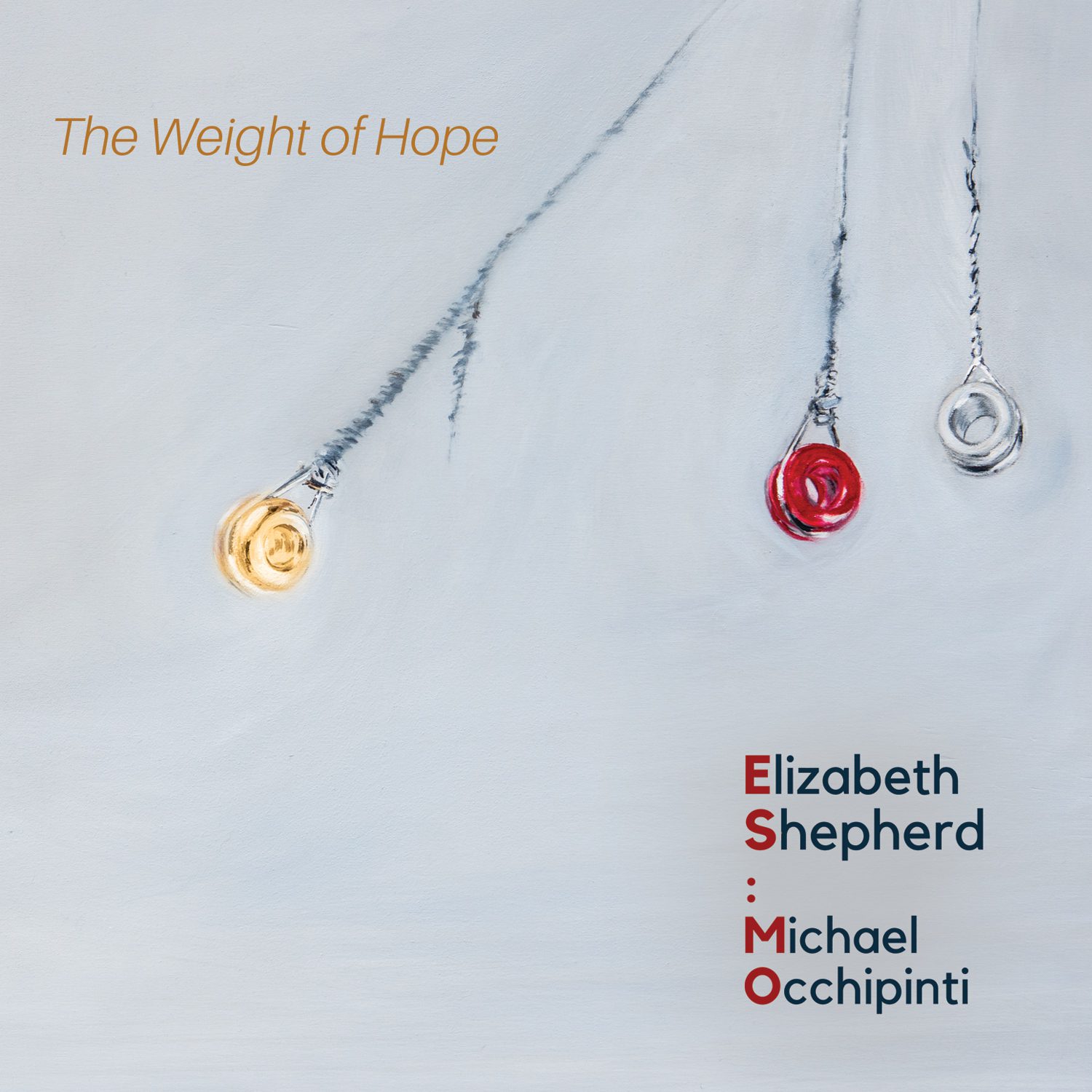Thank you both for joining us today. Would you like to give an introduction to our readers?
MICHAEL:
Hi readers, thanks so much for joining us on Hidden Beats. My name is Michael Occhipinti, and I’m a guitarist and composer based in Toronto, Ontario, and one half of our duo project ES:MO.
Elizabeth:
I’m Elizabeth – the other half – a pianist singer-songwriter based in the Laurentians, in Quebec.
Who were your early inspirations? The reason you fell in love with music.
ELIZABETH:
My earliest inspirations were hearing my parents as I fell asleep at night – my mom singing, my dad playing the piano. They were both ministers, and music was an integral part of being at church, so for as long as I can remember, I was always surrounded by music. I studied classical piano at the RCM, and later at the conservatory in Paris when we moved there; my dad would play me entire symphonies, and so I had a solid classical knowledge. But it was really my older brother who introduced me to everything else, from Duran Duran to Stevie Wonder to Ella Fitzgerald and Duke Ellington. I fell in love with music because it was what makes me feel whole and connected, and what has always been a constant as we moved around, changing cities/countries every few years.
MICHAEL:
I’m the youngest of five siblings, and both my brothers were already gigging musicians when I was a kid (my brother Roberto plays bass on some of our albums). Through their record collections, The Beatles and Stevie Wonder definitely inspired me and made me fall in love with music, but my brothers also pointed me to the rest of the British Invasion, funk, soul, and groups like Weather Report, The Police, and a range of guitarists from Jeff Beck, Jimi Hendrix, and Stevie Ray Vaughan, to Lenny Breau, George Benson, Pat Metheny, Bruce Cockburn, and Ed Bickert. In high school, I got into bands like Talking Heads, and the British New Wave, but then dove hard into a whole range of jazz, classical, and music from other cultures in my university years.



